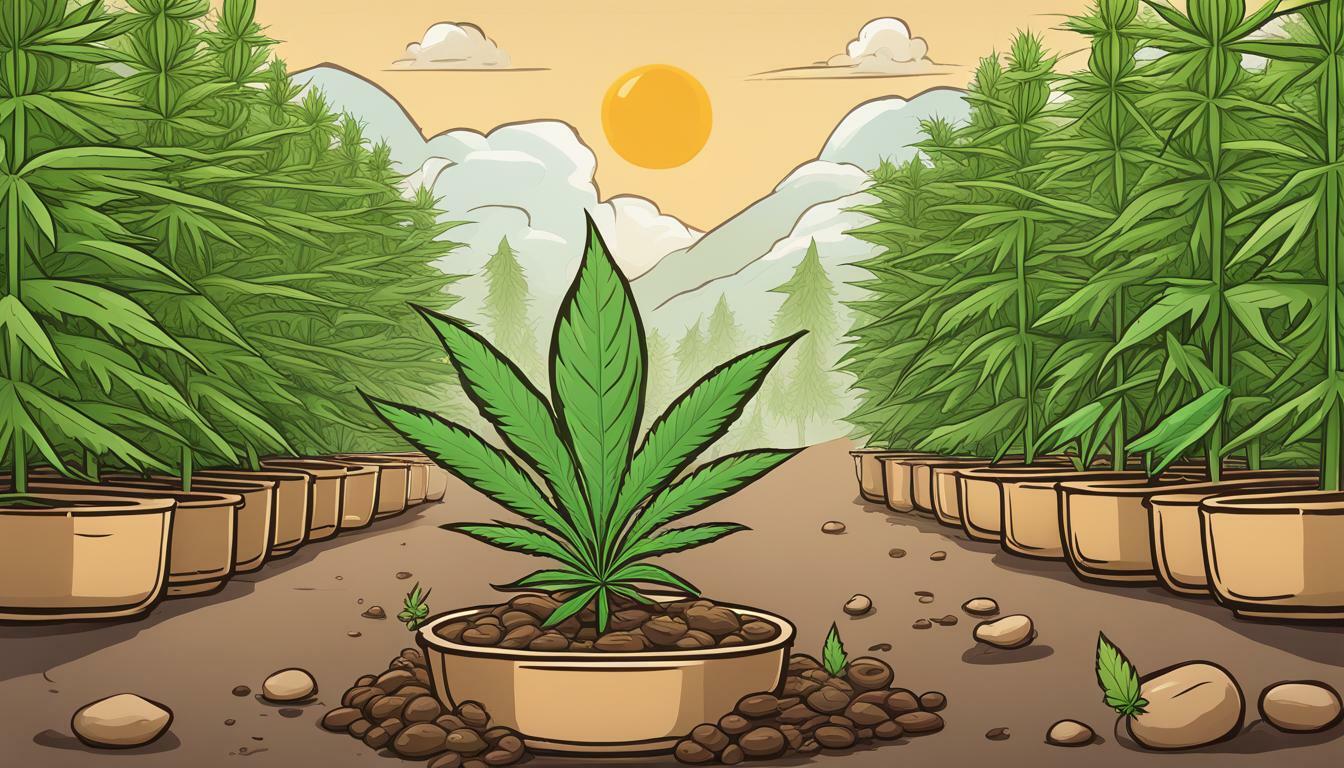In an era where environmental concerns take center stage, the burgeoning cannabis industry is rising to the challenge by adopting sustainable and eco-conscious cannabis cultivation practices. “The Future is Green” embarks on a journey through the innovative techniques that are revolutionizing cannabis production while minimizing its ecological footprint.
We will examine three groundbreaking methods—water conservation, renewable energy sources, and organic farming practices—that not only offer environmental benefits but also pave the way for a thriving and responsible future in the cannabis sector.
Water Conservation: Harnessing the Power of Efficiency
Cannabis plants are notorious for their high water requirements, which can strain local resources and contribute to water scarcity. To combat this issue, many growers have turned to water conservation techniques. One such approach is using drip irrigation systems, which deliver water directly to the root zone of plants. This method minimizes water waste and ensures that each plant receives the necessary amount of water without overuse.
Another innovative water conservation method is capturing and reusing runoff water. By collecting water from condensation, rainfall, or other sources, growers can reduce their reliance on external water sources. This practice not only conserves water but also saves on utility costs, making it an economically sustainable choice as well, enhancing your cannabis cultivation.
Renewable Energy: Powering the Industry Sustainably
As the cannabis industry expands, so does its energy consumption. To reduce their carbon footprint, many cultivators have turned to renewable energy sources such as solar, wind, and hydropower. By harnessing the power of nature, these green energy sources provide a sustainable and eco-friendly alternative to traditional fossil fuels.
Solar power, for instance, has gained popularity in recent years, as it is both cost-effective and environmentally friendly. Growers can install solar panels on rooftops or unused land to generate electricity for their operations, reducing their reliance on non-renewable energy sources. Wind and hydropower are also viable options for powering cannabis cultivation facilities. By investing in wind turbines or hydropower systems, cultivators can tap into renewable energy sources that contribute to a more sustainable future for the industry.
Organic Farming Practices: Going Green from the Ground Up
Organic farming practices are another way to promote sustainability within the cannabis industry. By avoiding synthetic pesticides and chemical fertilizers, growers can reduce their environmental impact and produce a cleaner, safer product for consumers.
One popular organic farming method is the use of living soil, which is teeming with beneficial microorganisms that support plant health.
By nurturing a diverse and thriving microbial ecosystem, growers can enhance nutrient uptake, improve pest resistance, and minimize the need for chemical intervention.
Another approach to organic cultivation is the use of companion planting, where growers strategically plant certain species alongside cannabis to deter pests, enhance soil fertility, and promote biodiversity. This natural pest management strategy reduces the need for synthetic pesticides and fosters a more harmonious growing environment.
Charting a Sustainable Course for Cannabis Cultivation
The future of the cannabis industry is undeniably green. By embracing eco-friendly cultivation techniques such as water conservation, renewable energy sources, and organic farming practices, growers can contribute to a more sustainable and environmentally responsible industry.
These methods not only benefit the environment but also lead to cleaner, safer products for consumers, demonstrating that the health of the planet and the well-being of its inhabitants are intrinsically linked. As the cannabis sector continues to evolve, it is essential for all stakeholders to prioritize and invest in sustainable practices, ensuring a greener, brighter future for the industry and the world at large.




